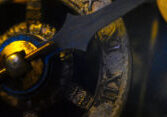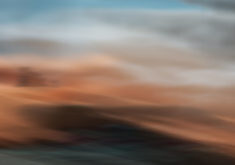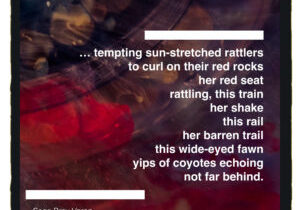Going Rough and Tumble
I’ve always been a little envious of people who create without a lot of focus on refinement. They create without thinking about it too much, reveling in the process, maybe working a bit haphazardly but almost always with immense joy. I, on the other hand, want everything to come out of me perfectly formed. It’s even hard for me to move from one step to another if the prior step isn’t at least approaching perfection. That’s absolutely silly though, and I know it. So, I am constantly reminding myself to let go and just create.
I do forget sometimes, though. I had a terrible time with my first novel last year. I probably rewrote the first chapter nine times before moving on to chapter 2. And, you know what? I’m probably going to lose about three quarters of it due to changes in the story made in later chapters! Ugh.
Most of the time, you really need to just roughly hash out new work, new designs, and new ideas before you can even take a stab at perfection. This also applies to new techniques, new mediums, and new approaches to work and designs you are already accomplished at. You just have to give yourself room to play before you refine.
On the second novel I worked on last year (I set the first one aside to do this shorter, stand-alone novel), I didn’t allow myself to edit. I just pushed myself to keep going. I ended up writing it so fast that I felt like I was running out of control down a hill, limbs all akimbo, occasionally stumbling into a boulder or tree or having to wade through a stream, but I just kept going.
Even with all the bumps and bruises and the soggy feet, it was a great experience because I was getting work done, and lots of it. And now, with all but a few additional chapters to wedge in, I can see quite clearly what needs to be refined, and I didn’t waste time rewriting scenes I may end up tearing out or would need to rewrite again. That felt much better than having to tear down something I spent hours on trying to get perfect.
Aside from those advantages, just diving in and getting the rough work done makes the work less precious, so you’re more likely to take some risks with it. If you’ve already put in hours trying to perfect the work, you may avoid trying something that could fail or ruin it, potentially missing out on a breakthrough or taking the work in a new and better direction. Or you’ll stubbornly keep the part you spent so much time on even if it isn’t working for the piece.
Working quickly and roughly also means you’ll be producing a lot which can feel so good in itself. Yes, a good portion of what you create might end up being crap, but so what? You’re doing the work you love, which is time well spent, and you are bound to get some amazing work out it while honing your skills and working out your ideas.
Take the photo here. It came from working with some new photographic gear. I was trying out ways to develop abstract shots as I need new art I can produce quickly to go with my poetry+art project (you can see them on my Instagram page). This photo is from a batch of nearly a hundred I shot of objects just lying around the house. Out of that 100, I found four that I want to use in my projects. However, I wasn’t trying to create anything specific. I was testing ideas. But I did a lot of work, and without even trying, I ended up with pieces I was quite happy with. (That photo is a super macro shot of the tip of a dirty butter knife with some creative settings and blur, in case you’re itching to know.)
So, although I am all for aiming for near perfection, perfectionism is not the friend you want with you on a journey of exploration. Call that friend up on the final leg, the final lap, for the polishing stage of your work. Before then, worry more about getting the work out of your head and into the world because, truly, producing the work, even when rough, is the most important part both for you and for the work itself.









